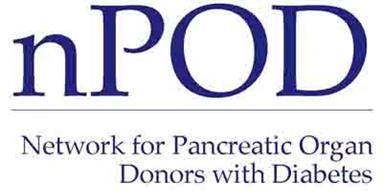Of Mice and Men: How the nPOD Program is Changing the Way Researchers Study Type 1 Diabetes
By Kelly Close
 By Maxwell Votey, Alexander Wolf, Mallika Tamboli, and Kelly Close
By Maxwell Votey, Alexander Wolf, Mallika Tamboli, and Kelly Close
Twitter Summary: #nPOD is transforming #t1d research methods + pushing to a cure through #diabetes organ donation.
“Researchers use nanoparticle ‘vaccine’ to cure type 1 diabetes…”
“Cheap blood pressure drug cures diabetes…”
“Stem cell therapy cures type 1 diabetes…”
“Gene therapy cures diabetes…”
These actual headlines about diabetes “cures” all end with the same two critically important words: “in mice.” Animal research is of course tremendously important in teaching us more about how type 1 diabetes works, but making the leap from mice models of “cures” to therapies that work in actual humans has proved difficult, a challenge made even tougher given the lack of access to human tissue sample – especially from the pancreas. Indeed, for this reason and others, researchers have long had to rely on mouse and rat models to study type 1 diabetes, and while the disease has been cured over a three hundred different ways in mice, no cure has ever come close in humans.
The nPOD initiative (“Network for the Pancreatic Organ Donor with Diabetes”), aims to address this problem by enabling access to human pancreatic tissue samples through a network of human tissue donations. nPOD was founded in 2007 and is sponsored by JDRF. We talked with Dr. Mark Atkinson, the Executive Director of the nPOD initiative, to learn more.
How does nPOD work?
nPOD is the first of its kind as a program to specifically pair organ donors that have diabetes to researchers in need of tissues to study. nPOD tissue samples come from organ donors (many from people with type 1 or type 2 diabetes – more information on donation eligibility is below), meaning they are donated to research when an individual is undergoing procedures to have their organs (for example heart, lungs, liver) procured for therapeutic transplantation or research. Organs from essentially any location in the United States are shipped to the University of Florida, where the nPOD team, 24/7/365, processes them for eventual distribution to diabetes researchers. Access to donated human tissue gives researchers tremendously valuable insights into how the disease develops in humans. Thus far, nPOD has gotten samples from almost 350 organ donors and distributed these tissues to over 175 researchers worldwide.
While it has been difficult to find donors with type 1 diabetes, Dr. Atkinson noted the support the program is given by both researchers and the diabetes community: “We’ve been really encouraged and very well-supported even with the uncomfortable topic of death. I don’t think I ever give a talk to lay persons where someone does not say they are tired of hearing about type 1 diabetes being cured in mice but that there is no cure for people. They are very encouraged to hear there are researchers trying to look for a cure in something other than mice and are really supportive of the human research that nPOD helps provide.”
Interested in becoming an nPod organ donor?
For anyone interested in supporting the work of nPOD and future research in type 1 diabetes, see below for more information on how to donate to nPOD.
Am I eligible to be a donor? Anyone with type 1 or type 2 diabetes at any age may sign up to become an nPOD donor. Additionally, anyone with antibodies positive for type 1 diabetes without symptoms of the disease, people who have gone through pancreas and/or kidney transplants, or people who have undergone bariatric (weight-loss) surgery are also eligible. For more information on eligibility, please see this document on the nPOD website.
Where are they located? nPOD partners with nearly ten organ recovery organizations and screening labs across the United States to ensure effective organ recovery from donors anywhere in the country. For more information on organizations with whom nPOD partners, please see its webpage.
Who would I contact for more information? The nPOD website has contact information found here. Furthermore they have a 24 hour phone service at 1-866-731-6585 for more information.







